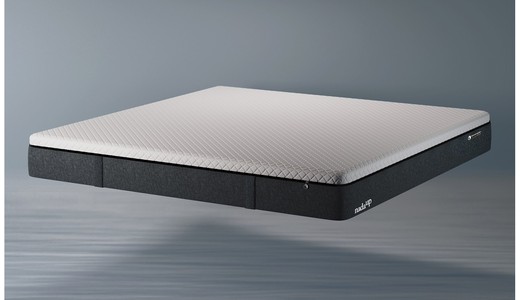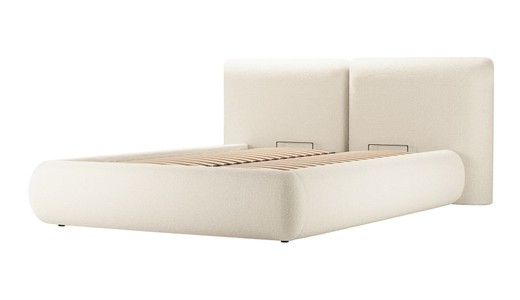The Freedom Paradox: How Mattress Choices Mirror the Crisis of Modern Consumerism

We live in a time when choice is often mistaken for freedom. From breakfast cereals to streaming platforms, we’re constantly navigating a flood of options. But instead of empowering us, this abundance often leads to stress, indecision, and fatigue. Even a seemingly simple act—like buying a mattress—can become a symbol of something much deeper: the emotional cost of modern consumerism. This article explores how a basic product we rarely think twice about can reveal surprising truths about autonomy, wellbeing, and what it really means to choose wisely in a world that’s always selling something.
Why Your Mattress Decision Matters More Than Ever
I. The Freedom to Choose: A Double-Edged Sword
Freedom has always been celebrated as the cornerstone of human progress. But what does it truly mean to be free in the 21st century?
In their influential book Free to Choose, Nobel laureate Milton Friedman and his wife Rose argued that individual liberty—especially economic liberty—is the key to a thriving, autonomous society. They championed markets and personal choice as tools for empowering individuals, freeing them from coercion, and allowing their preferences to shape their destinies (Friedman & Friedman, 1980).
Yet, in the digital era, we’re caught in a strange contradiction. We have more choices than ever before—an infinite scroll of options for even the most mundane purchases. Yet research shows that this abundance doesn’t always lead to satisfaction. Excessive choice can overwhelm our decision-making and reduce our happiness, a concept known as the paradox of choice (Schwartz, 2004).
And one area where this paradox plays out quietly but powerfully? Your mattress.
II. Choice Fatigue in a World of Sleeplessness
Walk into any mattress store or browse online, and you’ll find hundreds—sometimes thousands—of options: memory foam, hybrid, gel-infused, orthopedic, soft, firm, zoned, spring-loaded, eco-certified, and more. Every brand claims to offer the perfect night’s sleep, backed by trendy buzzwords and persuasive advertising.
However, studies suggest that having too many options often leaves us either frozen in indecision or regretful after purchase (Iyengar & Lepper, 2000). It’s decision fatigue masked as empowerment.
The problem is, a mattress isn’t just a consumer item—it’s a health device. The average human spends around one-third of their life in bed (Colten & Altevogt, 2006). That makes your mattress not just furniture, but a physiological foundation.
The freedom to choose means nothing if we’re not equipped to choose wisely.
III. True Freedom Means Choosing Consciously
In our rush to click “buy now,” we often forget that real freedom doesn’t mean having unlimited choices. It means having the clarity and intention to make meaningful ones.
Conscious consumerism demands that we ask deeper questions:
-
Does this product support my long-term health?
-
Does it align with my values?
-
Is it backed by scientific and medical validation?
Sleep isn’t a luxury—it’s a biological imperative. Poor sleep has been linked to depression, obesity, cardiovascular disease, and even decreased immune function (Watson et al., 2015). So if a mattress impacts how you sleep, then it’s directly influencing your health, mood, and productivity.
That’s why what you sleep on should never be an afterthought.
IV. NadaUp: Elevating Sleep into a Freedom Practice
At NadaUp, we don’t just sell mattresses. We challenge the noise of modern excess by offering a science-driven, health-first approach to rest.
Our mattresses are made with Mammoth Medical™ Grade Foam, co-developed with leading researchers from Oxford and Northumbria University, originally designed for medical recovery and sports rehabilitationEN NadaUp - Every night….
Backed by organizations like MHRA, NICE, CSP, and ACPOHE, NadaUp mattresses aren’t just comfortable—they’re clinically validated for pressure relief, spinal support, and mental well-being (EN NadaUp - Every night)
Here’s what choosing NadaUp means:
-
29% faster sleep onset
-
60% better pressure distribution
-
69% faster cooling
-
7% higher sleep efficiency—translating to potentially 25 more full rest cycles annually, and even 2–5 extra years of life (EN NadaUp - Every night)
In an era obsessed with more, NadaUp returns you to what matters most: restoration, balance, and the clarity that comes from deep, regenerative sleep.
V. The Sleep-Freedom Feedback Loop
A good mattress doesn’t just help you sleep—it helps you think. And when your brain is well-rested, you make sharper, wiser decisions.
Research confirms that sleep enhances executive function, problem-solving, and emotional regulation (Walker, 2017). So yes, your mattress has the power to affect how free you feel the next day.
When you sleep deeply:
-
You recover more fully
-
You regulate stress hormones like cortisol
-
You boost serotonin and melatonin, balancing your mood and sleep cycle (EN NadaUp - Every night)
-
You gain the energy to make choices that align with your goals
This is the true meaning of “free to choose”—the freedom not just to act, but to act intelligently and intentionally.
VI. Final Thoughts: Choose Less, Live More
Freedom in the age of hyper-consumerism doesn’t come from scrolling through more options—it comes from understanding what really matters. Sleep isn’t a commercial battlefield. It’s your personal sanctuary.
Let your mattress reflect that. Let it be a conscious investment in your well-being, not an impulsive click.
Choose NadaUp—not because it’s another option, but because it’s the informed choice.
Sleep is not passive. It’s where your freedom is restored.
References
-
Friedman, M., & Friedman, R. (1980). Free to Choose: A Personal Statement. Harcourt.
-
Schwartz, B. (2004). The Paradox of Choice: Why More Is Less. Harper Perennial.
-
Iyengar, S. S., & Lepper, M. R. (2000). When choice is demotivating: Can one desire too much of a good thing? Journal of Personality and Social Psychology, 79(6), 995–1006.
-
Colten, H. R., & Altevogt, B. M. (2006). Sleep Disorders and Sleep Deprivation: An Unmet Public Health Problem. Institute of Medicine.
-
Watson, N. F., et al. (2015). Recommended amount of sleep for a healthy adult: a joint consensus statement. Sleep Health, 1(4), 233–243.
-
Walker, M. (2017). Why We Sleep: Unlocking the Power of Sleep and Dreams. Scribner.









